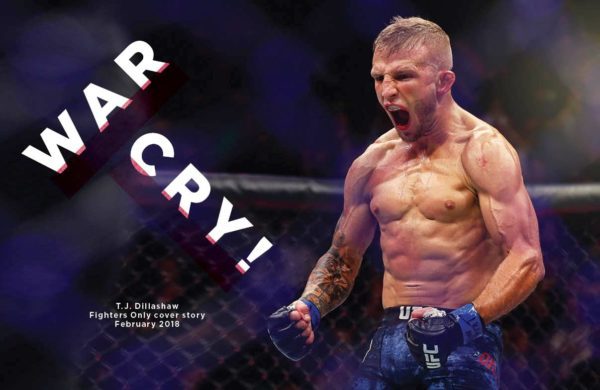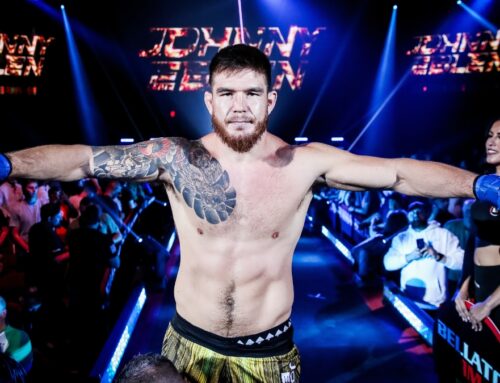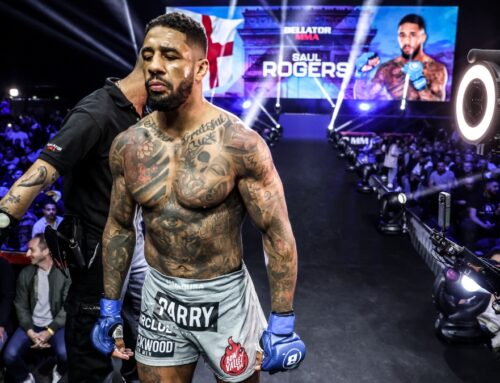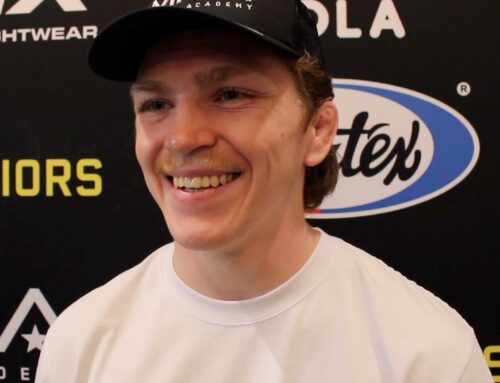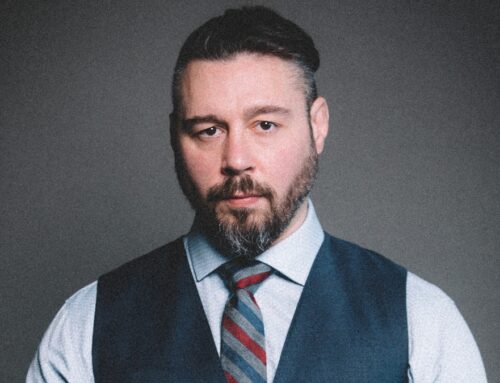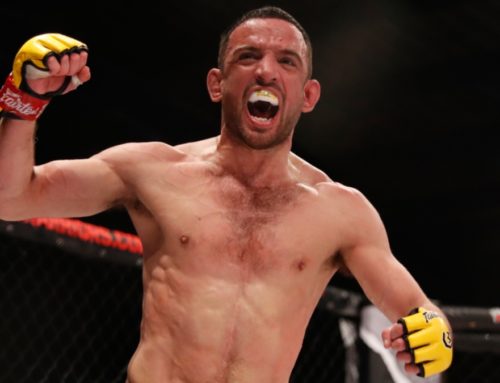After putting two years of drama behind him to reclaim the 135lb belt, T.J. Dillashaw is calling for a fight with Demetrious Johnson to earn him the title of world’s best.
All the talk ahead of T.J. Dillashaw and Cody Garbrandt’s long-awaited bantamweight title grudge match had been about bad blood.
Following an acrimonious departure from his gym, many of the members of Team Alpha Male had taken every opportunity they got to bad-mouth him. “A snake in the grass,” he was dubbed. He brushed it off.
The heat built up after a confrontational six weeks’ coaching on The Ultimate Fighter, throughout a four-month delay from the original fight day and in the days before the bout, as old footage of “No Love” knocking down Dillashaw in sparring emerged on social media. Again, he stayed cool.
When the rivals finally faced off, at UFC 217 in New York’s Madison Square Garden on the biggest night of MMA in 2017, it was the defending champion who drew first blood, showing off the crisp counterstriking at lightning speed to connect with a huge right hook that decked Dillashaw at the close of the first round. Once more, he had to stay level-headed.
Once he found his stool and coach Duane Ludwig got in his ear, he settled. The plan to get his belt back was still the same: crowd him, cut him off, keep the pressure on and pick your shots. Only once the fight started again, he had to blast some kicks without setting them up.
“If you can always keep your opponent guessing then you can take advantage of some timing issues,” he says. “We realized something in the first round and I was able to come out, switch some things up and take advantage of it. I’m learning to switch up my tempo and be a different fighter from round to round. When I train for each fighter, I train differently, so by doing that I’m able to switch up my game plans on a dime.”
The first kick flew over Garbrandt, who slipped it with trademark taunt designed to infuriate. Chants of “F**k you T.J.” erupted from around the arena. Lesser fighters would have been caught up in the moment.
Joe Rogan thought he had, suggesting he was more flat-footed and loading up on his strikes in search of a decisive blow. But Dillashaw had kept his head for more than two years by this point. He had a plan and was sticking to it.
Seconds later, the fight turned. A head kick dropped Garbrandt and he was rattled. Then the roles were completely reversed. The champion attacked, then was dropped by a clean right hook. There was no horn to save him as his rival jumped into side control and finished him off.
Now there was no need for calm. The new champion jumped up, flexed and yelled in celebration. As the fallen champion rose to his feet, he bore the full brunt as two years of frustration were released in one primal roar.
“That’s as raw as it gets,” says the new main man at 135lb. “I stood up and I was yelling because I was super pumped. It was almost like a war cry. Cody stumbled to his feet towards me and it was a natural reaction to yell in his face because there was a lot of bull crap leading up to that fight that I had to put up with. It was just kind of releasing a lot of built up animosity.
“To prove that I’m the best in the world and with everything I’d been saying about the belt was mine the whole time, that was a great thing to back up my words.”
Catharsis
A couple of weeks after UFC 217 – where he became only the ninth two-time UFC champion – the new bantamweight king is at home, preparing to welcome his first child into the world with his wife, Rebecca. He sounds like he’s at peace.
It must be a huge contrast to the previous months, when a professional dispute played out in a very public way. Insults were thrown at him by former colleagues and friends, as well as total strangers on social media.
FO asks whether the experience frustrated the 31-year-old. “Maybe at first, and because it wasn’t just him, it was his whole team who decided to jump on the bandwagon and try to frustrate me,” he admits. “Maybe having to deal with all their bull crap at first, but it got old and they were making fools of themselves.
“The more and more I just let them make fools of themselves, the easier it got. Not only for me, but the public was seeing how immature they were acting and how ridiculous the whole thing was. It was really forced. It got easier as the time went on.”
In fact, he says the experience helped him to realize the number of people out there that were on his side. When some episodes of TUF turned ugly and the conflict became prematurely physical, plenty of people took to their keyboards to throw their hat in his corner.
“I got a lot of positive mentions from The Ultimate Fighter,” Dillashaw adds. It was a great thing for me and my coaches to tell our story and to show and prove why I left. They showed their true colors and it was perfect. It showed everything I was saying this whole time. They backed up my rhyme and reason to leave (Team Alpha Male).”
His focus was on the fight. He was barely out of the gym all year. Even a Garbrandt back injury setting the bout back by four months just allowed more time to dedicate himself to improving on the already exemplary set of skills he possessed.
He moved his camp to Southern California where he wrestled at Cal State Fullerton, working with new coaches as well as Ludwig, who traveled out four days a week, too.
The version of Dillashaw that emerged from the Treigning Lab in Laguna Hills, California was faster, stronger and more powerful than any previous iteration. Knocking out a previously undefeated champion was proof. He was almost too good, in fact. The plan was to stretch the fight out over four, maybe five rounds. But why?
“Just to prove my dominance over him, to really frustrate him and show how much better I am – because I know that I am,” Dillashaw explains. “But I’m not going to shy away from a finish! That’s why I jumped on him right away. I don’t ever want to go to a decision again, but it was one of those things where I wanted to prove my dominance.”
Perhaps if he looked deep inside himself, there was part of him that was thinking about payback after all the back-and-forth in the build-up.
He laughs: “Yeah, I’m sure that was part of it as well, absolutely!”
One of the benefits of a quick and decisive finish, however, is that this whole affair has been put behind him. For now, at least. Another injury to Dominick Cruz also seems to have taken another long-standing rivalry off the table.
Dillashaw is thankful to be able to put the bad blood behind him and focus on an ultimate goal beyond specific adversaries and championship obligations.
“Yeah, it’s a huge relief,” he says. “It’s definitely going to be behind me. Cody never once defended his belt, I don’t think he fought the best Dominick Cruz and he got knocked out in the second round.
“The guy’s going to have to build himself up and I think he’s got holes in his game where it’s going to be tough for him. Let’s see how he bounces back. In the meantime, I’m looking to push on my legacy as the best pound-for-pound fighter in the world.”
Chasing Mighty Mouse
Dillashaw sees one more step to achieving his goal. “Chasing down” flyweight champion, Demetrious Johnson. It’s a matchup he’s been chasing since a slot opened up against “Mighty Mouse” when challenger Ray Borg was ruled out of UFC 215.
“When Cody dropped out of the fight I instantly told Dana, ‘I want a belt and I know Demetrious is up for a big fight.’ He loved it and told me that day that’s what I was doing.”
But the 125lb champion preferred to wait and defend his belt for a record 11th time against Borg on the next pay-per-view event. He was against someone coming down from 135lb and skipping the line at flyweight, among other reasons. He would, however, have considered making an exception for the reigning bantamweight belt holder to make a champion vs. champion super-fight.
Now, Dillashaw fits that criteria and he says it’s a fight that has to happen. Dana White has given the bout his backing, so now he’s just waiting for a contract to sign.
“If he wants to continue to run, and I don’t think he can anymore, it’s going to be a real bad look for him. I want to see it, the UFC wants to see it, the fans want to see it, the ball’s in his court. It’s ready for him to man up and take a big fight.”
As part of an outspoken campaign to secure this history-making contest, Dillashaw isn’t afraid to goad his title-holding counterpart from the division below. He’s also keen to highlight his respect for him as the top-ranked fighter on the Ultimate Fighting Championship roster. He argues he can help him secure the kind of fight that will give Johnson the profile and payday he’s looking for. It’s great for both of them.
“It’s not his fault he’s not more of a draw,” he adds. “He shows up for every fight, he always goes for the finish, he pushes the pace, he looks fantastic doing it every time. He’s had a few close fights early at ’25 that questioned how great he was, but as of late he’s looked unstoppable.
“But no one ever talks about what fight he’s got coming up, they talk about the record he’s about to break or the long win streak he’s been on and how dominant he is. This is a fight where people will finally talk about the actual fight and who’s going to win – one that will put a question mark in the fans’ minds and be more of a draw because of that.”
It’s certainly an intriguing matchup. Though he is supreme in every area of offense and no one has got anywhere close to defeating him for five years, Johnson would be at a size disadvantage against the man currently ranked at number six on the pound-for-pound list.
“He’s a very well-rounded fighter, but there are chinks (in his armor) and things I can do better,” Dillashaw says. “The biggest threat to Demetrious is that I’m so well-rounded. He can’t throw out his game plan of exposing a weakness and taking advantage of it. He can’t outwrestle me, he’s not going to outstrike me. He’s a smart fighter and has exploited weaknesses, but I don’t feel like I have them. We’ll have to see if he can find them, because I can’t.”
The rewards, if he can secure the bout and do what no flyweight has ever done, would be a second belt, and any number of material benefits that can come with being a two-division world champion. But those are secondary prizes.
“Being a double-champ – that’s a huge role in a big legacy,” he says. “It has only been done once before with Conor McGregor and look at him now. The perks that come along with it – the attention, the money – is also part of it. That’s not why I got into the sport, whatsoever. Most important is me getting on top of the world and being crowned the best pound-for-pound fighter.”
And if he can get a second belt, he doesn’t want to vacate one, or have the other lie dormant as he pursues other opportunities outside the Octagon. As long as his body allows it, he wants to maintain his pound-for-pound position in the most organic way possible – by defending two belts simultaneously.
“Yeah, man! Absolutely. If the UFC lets me, I’m always in the gym, always training so I’d like to be active and capitalize on my success. I’m definitely not afraid to defend the title. I’m a true champion.”
Making the cut
One of the stumbling blocks on the path to making DJ vs. T.J. the first time was Johnson’s doubts that Dillashaw could make the flyweight limit. It’s a fair point. He competed at 133lb in college, so how will he manage to get down?
“It’s definitely doable,” he says. “I always train heavy on the off-season to lean myself out for my camps and I was waking up at 154lb before that conversation with Dana. Within three weeks I was at 140 and the lowest I was getting was 137 after a workout. That was within three weeks of trying.”
“It’s going to be a lot of work, it’s going to be a lifestyle, but I’ve already proved to myself it’s doable. It’s definitely not going to be fun, but it’s going to be exciting to see my body transform and to prove I can do it and be at my best.”
This article first appeared in the February 2018 edition of Fighters Only.

